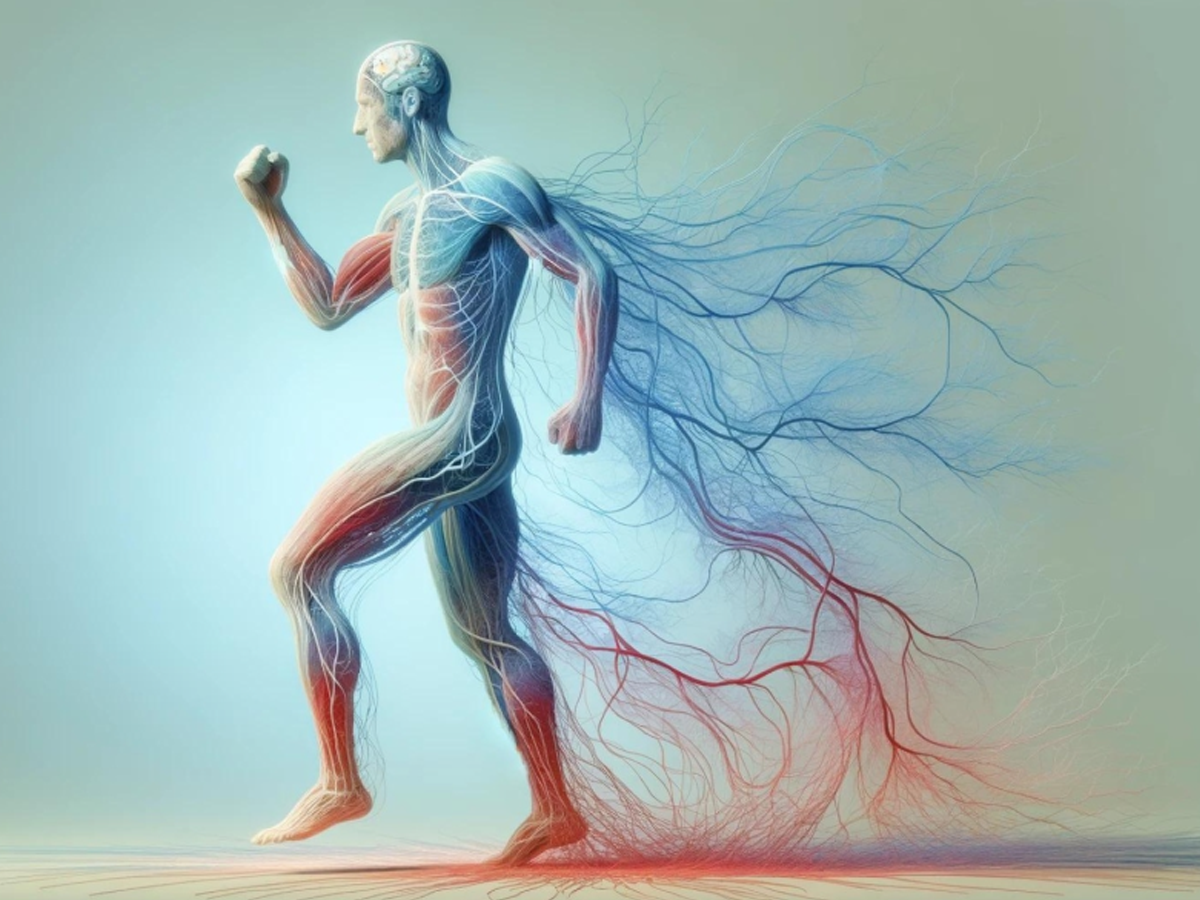Autologous Cell Therapy: A Breakthrough in Stroke Recovery
December 03 2024


Autologous Cell Therapy is emerging as a revolutionary approach to stroke recovery. By using the body’s own cells to repair and regenerate damaged brain tissue, this advanced treatment offers new hope for patients who previously had limited options for restoring lost function after a stroke.
Globally, Stem Cell Therapy has gained significant attention, with mesenchymal stem cells (MSCs) at the forefront of stroke research due to their ability to reduce neuro-inflammation, promote brain repair, and improve overall recovery. At ALIV, we take this concept further by offering autologous cell therapy, a highly specialized treatment tailored to each patient, ensuring safety, efficacy, and lasting results.
What is Autologous Cell Therapy for Stroke?
Stroke occurs when blood flow to the brain is interrupted, leading to neuronal death and brain damage. This can result in symptoms such as paralysis, memory problems, speech difficulties, and reduced mobility. While traditional treatments like physical therapy and medication focus on managing symptoms, autologous cell therapy targets the root cause by promoting healing and repair.
At ALIV, our autologous cell therapy uses cells harvested from the patient’s own bone marrow (autologous cells). These cells are processed using advanced techniques to maximize their potential to:
- Repair damaged brain tissue.
- Stimulate the growth of new neurons (neurogenesis).
- Reduce inflammation and oxidative stress.
- Promote the formation of new blood vessels (angiogenesis).
The Role of Your Own Cells in Recovery
Globally, Autologous Cell Therapy is recognized for its therapeutic potential in regenerative medicine. These cells are sourced from bone marrow, adipose tissue, or umbilical cord tissue and are known for their ability to differentiate into various cell types, including neurons and glial cells.
Key Benefits of Autologous Cell Therapy:
- Immune-Privileged Nature: Reduces the risk of rejection.
- Ease of Collection and Storage: Can be harvested and preserved for future use.
- Safety Profile: Ethical and free from adverse side effects like those associated with embryonic cells.
At ALIV, we harness these properties while adhering to strict ethical and regulatory standards, ensuring a safe and effective approach for our patients.
Scientific Advances in Autologous Cell Therapy for Stroke
The global medical community has made remarkable strides in understanding and utilizing regenerative therapies for stroke recovery. Studies have shown that MSCs can:
- Enhance Neurological Function: Preclinical trials indicate that MSCs can reduce the size of brain infarcts, leading to improved motor and cognitive abilities.
- Promote Long-Term Recovery: Clinical trials have demonstrated sustained improvements in patients treated with MSCs compared to traditional methods.
- Improve Quality of Life: Stroke survivors treated with MSCs report better daily functioning and reduced dependence on caregivers.
For example, a meta-analysis of 26 randomized controlled trials involving over 1,500 stroke patients found significant improvements in neurological function and daily living activities after cell therapy.
ALIV’s Approach to Stroke Recovery
At ALIV, we go beyond global advancements by incorporating proprietary methods that optimize the potential of autologous cell therapy. Our specialized protocols ensure:
- Personalized Treatment: Each patient’s therapy is customized based on their medical history and recovery goals.
- Advanced Processing Techniques: Our in-house lab uses cutting-edge technology to prepare cells for maximum therapeutic benefit.
- Holistic Care: From diagnosis to post-treatment follow-ups, we support patients at every step of their recovery journey.
The Healing Process: How Autologous Cell Therapy Works
When autologous cell therapy is used for stroke recovery, the injected cells migrate to areas of brain injury and release growth factors that stimulate healing. These cells:
- Reduce Neuroinflammation: Prevent further damage to surrounding healthy tissue.
- Stimulate Neurogenesis: Promote the growth of new neurons and neural connections.
- Enhance Vascular Growth: Improve blood flow to the damaged areas of the brain, accelerating repair.
Patients often experience improvements in:
- Mobility and coordination.
- Speech and cognitive function.
- Overall energy levels and stamina.
While individual outcomes vary, our patients at ALIV frequently report significant progress, even in cases where conventional treatments showed limited results.
Addressing Concerns About Safety and Efficacy
One of the most common questions patients ask is whether autologous cell therapy is safe. The answer is yes—when conducted under stringent protocols, as is the case at ALIV. Here’s why:
- Autologous Approach: By using the patient’s own cells, the risk of rejection or adverse reactions is virtually eliminated.
- Proven Success: Real-world patient outcomes consistently demonstrate the safety and efficacy of this therapy.
How Long Do the Effects Last?
The benefits of autologous cell therapy are often long-lasting, with many patients experiencing sustained improvements for months or even years after treatment. However, the duration depends on factors such as stroke severity, patient age, and adherence to rehabilitation programs.
Comparing Costs and Long-Term Value
While autologous cell therapies may involve higher initial costs compared to traditional treatments like physical therapy or medication, their long-term benefits often outweigh the expenses. At ALIV, we believe in transparency and provide detailed cost breakdowns so patients can make informed decisions.
The Future of Stroke Recovery with Regenerative Medicine
Autologous cell therapy represents the future of stroke recovery, offering hope where traditional treatments have limited scope. While global research continues to explore its full potential, ALIV is proud to be at the forefront of applying these advancements to improve patients’ lives.
Promising Areas of Research:
- Optimizing Delivery Methods: Developing techniques to ensure cells reach the brain effectively.
- Understanding Long-Term Effects: Exploring the sustained benefits of therapy through large-scale clinical trials.
- Expanding Applications: Investigating the role of regenerative medicine in treating other neurological conditions.
Patient Success Stories at ALIV
One of our patients, a 58-year-old stroke survivor, came to us with limited mobility and speech impairment. After undergoing regenerative cell therapy at ALIV, they reported:
- A 60% improvement in mobility.
- Noticeable progress in speech clarity.
- Enhanced energy levels, allowing them to participate in daily activities.
Such success stories underscore the transformative potential of our therapies.
Click here to view more such transformative results.
Take the First Step Toward Recovery
If you or a loved one has experienced a stroke, don’t let traditional treatment limitations define your recovery. At ALIV, autologous cell therapy offers a chance to regain function, independence, and quality of life.
Schedule Your Consultation Today
Contact us to learn more about how autologous cell therapy can help you. Our team of experts is here to guide you every step of the way.
Conclusion
Autologous Cell Therapy is revolutionizing stroke recovery, providing a safe and effective alternative for patients seeking comprehensive healing. At ALIV, we combine global advancements with proprietary techniques to deliver personalized care and real results.
Don’t Let a Stroke Define Your Future
Take control of your recovery with ALIV’s innovative autologous cell therapies. Together, we can help you achieve the life you deserve.
